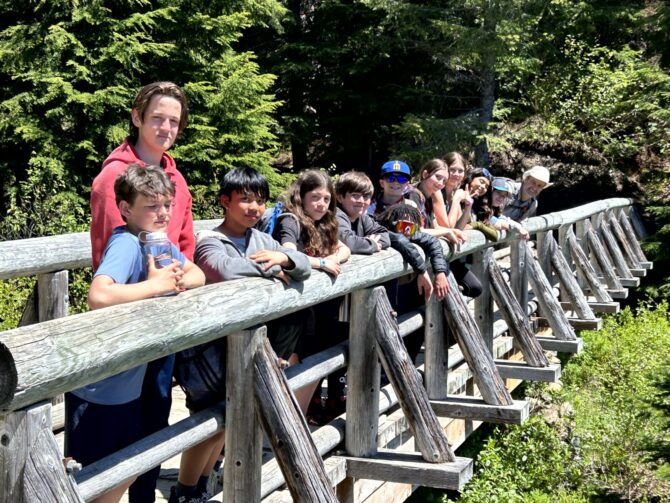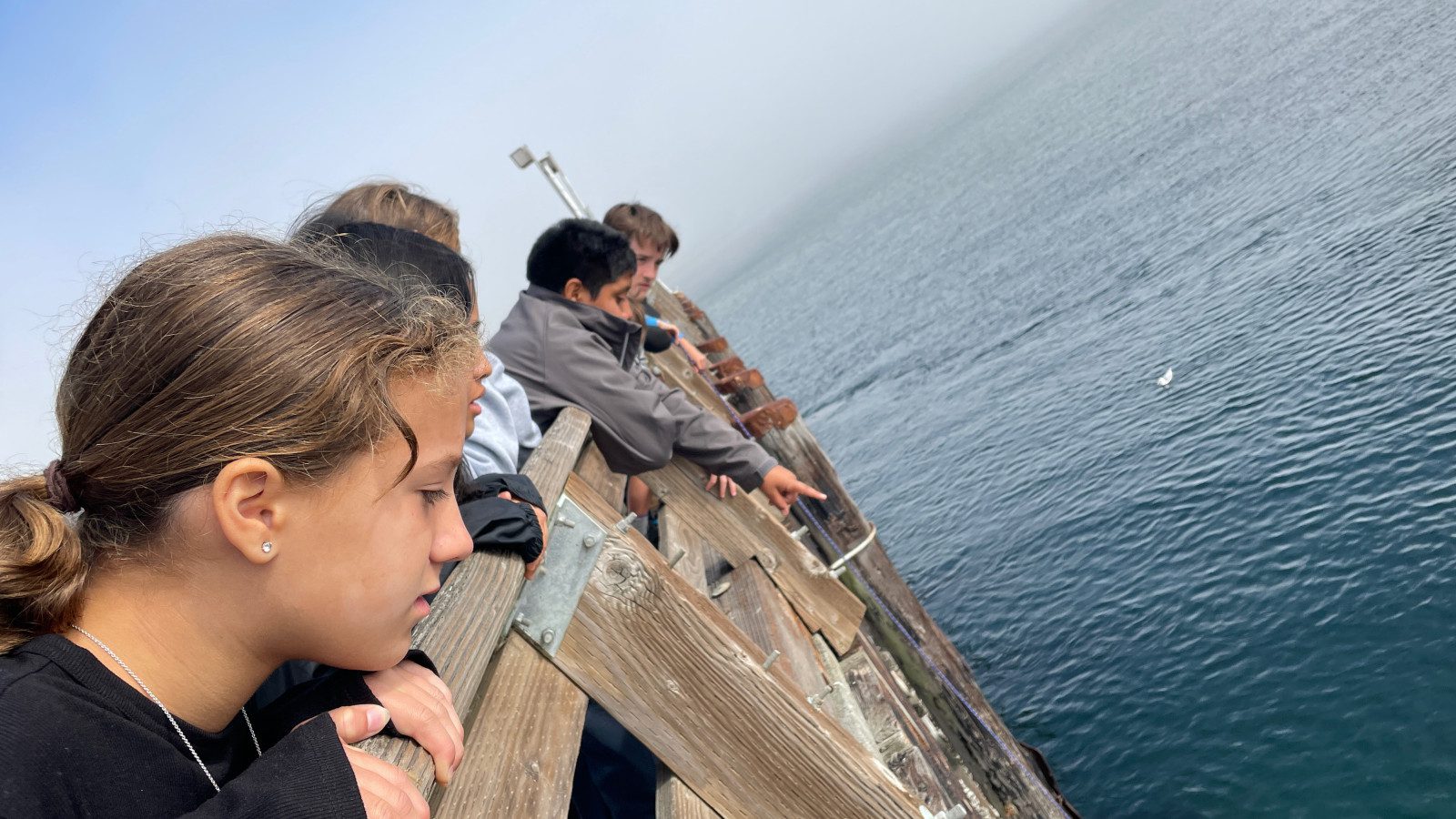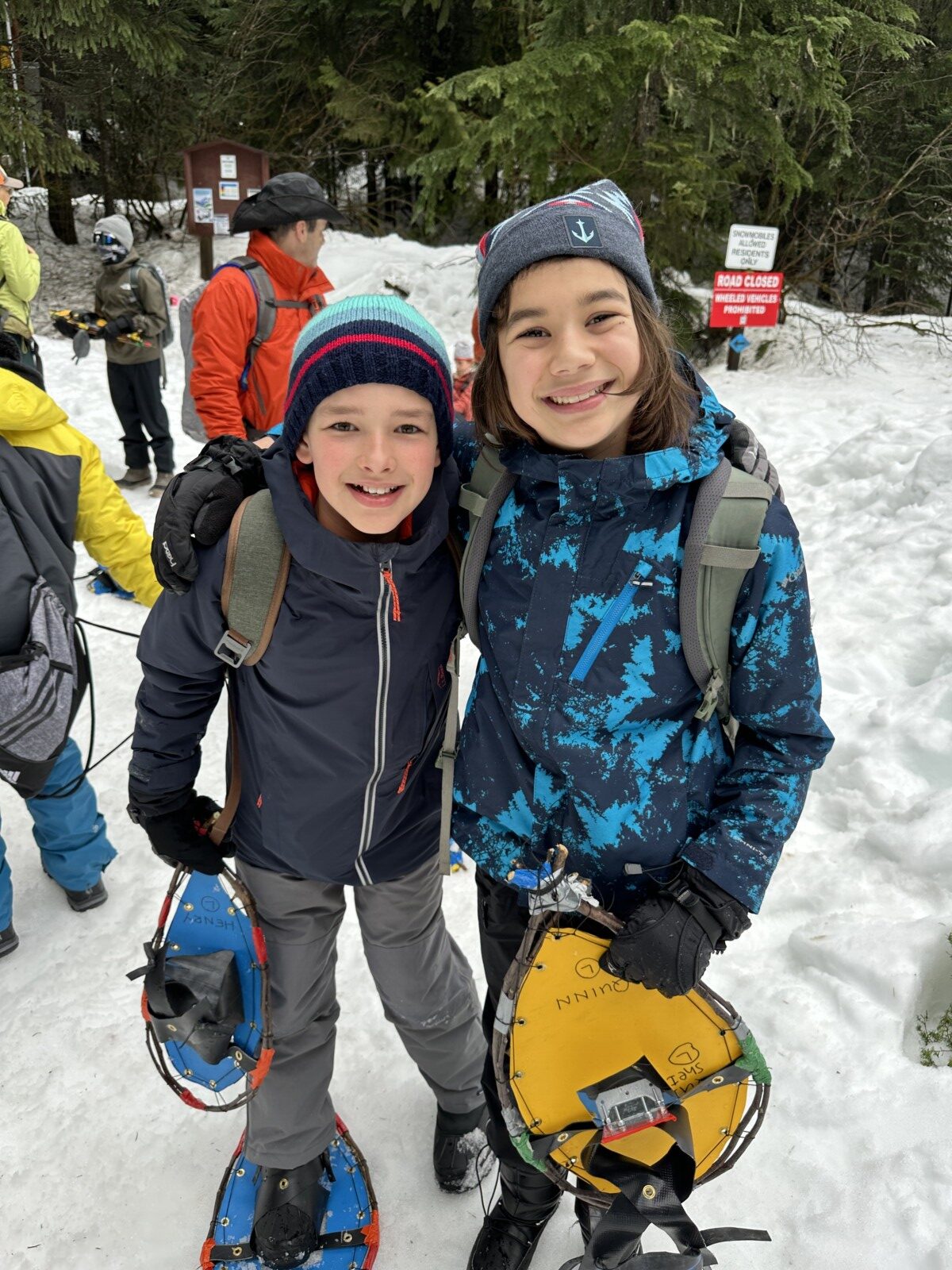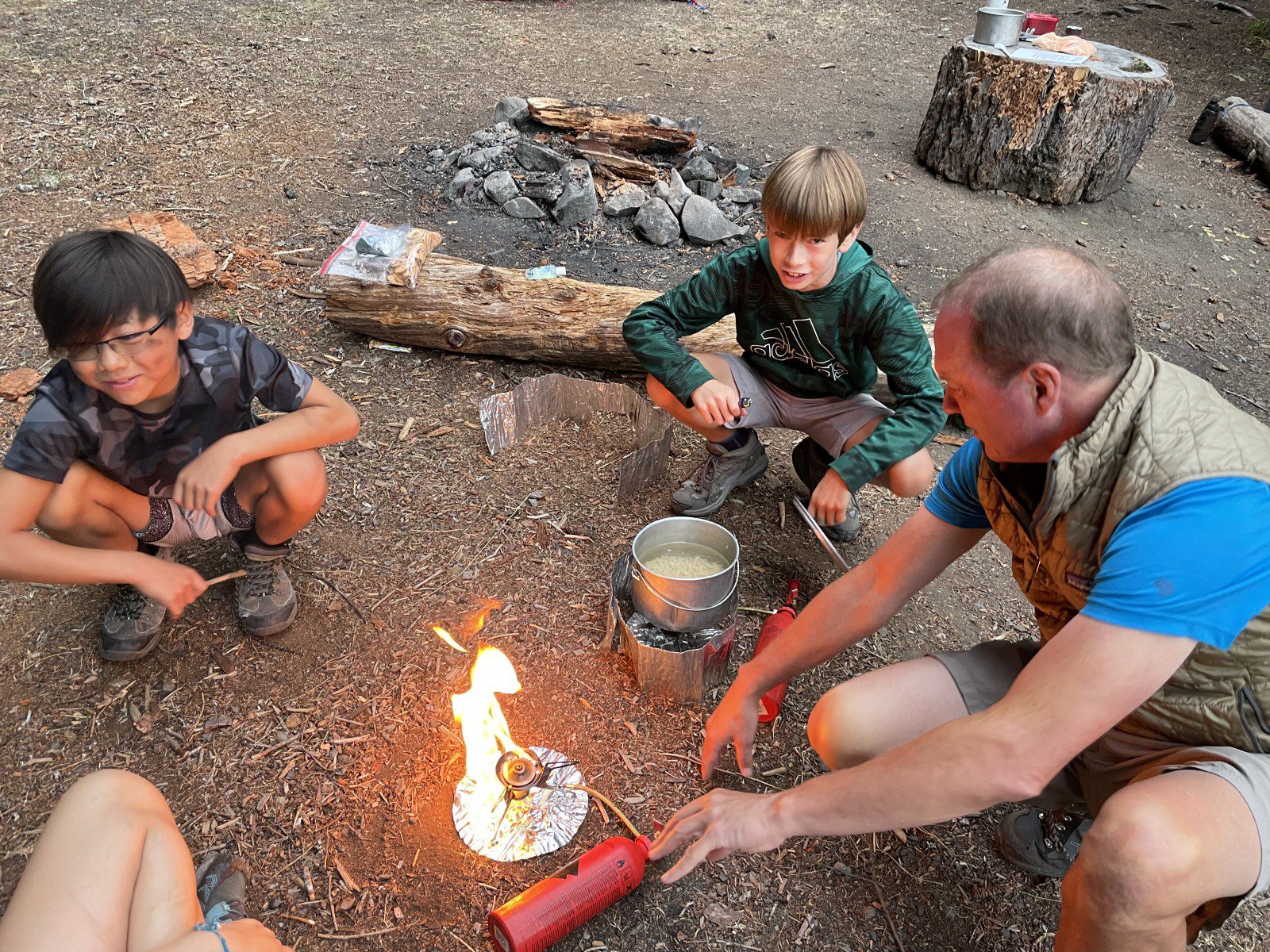The Importance of Outdoor Education

At Explorer West, we believe in the transformative power of the outdoors. Our students trade classroom walls for natural landscapes for ten days a year, taking unforgettable journeys that blend learning, adventure, and community.
Fall Trips: Setting the Stage for Adventure
Students gear up for three-day excursions designed to kickstart the school year with a dose of adventure.
- 6th Grade heads to Fort Warden, where they get their first taste of outdoor education. For some students, this is their first time away from home! They learn the basics: navigation, leadership, and outdoor cooking.
- 7th Graders take on the challenge of backpacking at Ross Lake, building their capacity and honing their skills.
- 8th Grade experiences the majestic Mount Rainier, where the adventure reaches new heights. They advance their hiking and backpacking skills and incorporate some science. 8th grade science is all about the Earth. Mount Rainer is a great place to see geology in person.
Spring Trips: Deepening the Experience
Spring trips extend to four days, allowing students to spend more time adventuring.
- 6th Grade explores the diverse landscapes of Eastern Washington, expanding their knowledge and appreciation of Washington. Students get to explore our desert ecology.
- 7th Graders complete their second backpacking trip to the Olympics, this time with more confidence and competence, ready to tackle the trails again.
- 8th Grade embarks on an epic backpacking journey down the Olympic Coast, a rite of passage that caps off their Explorer West experience.
More Than Just Skills
While there are many benefits, these trips are about more than just learning outdoor skills. Students forge friendships and create memories that last a lifetime. The presence of teachers and staff on these trips fosters unique bonds, allowing students to see their mentors in a whole new light.
Why Outdoor Education for Middle School Students?
Outdoor education offers many benefits, particularly for middle school students navigating a critical stage of their development. Here are some key advantages:
- Enhanced Learning and Engagement: Hands-on activities in nature stimulate curiosity and engagement, making learning more dynamic and impactful. According to a University of Wisconsin-Stevens Point report, outdoor education can "boost academic performance, personal development, and environmental stewardship."
- Development of Practical Skills: From navigation and outdoor cooking to teamwork and leadership, students gain valuable skills beyond the classroom.
- Boosted Confidence and Independence: Facing and overcoming challenges in the wild builds confidence and fosters a sense of independence.
- Physical and Mental Well-being: Time spent outdoors promotes physical health through active movement and mental well-being through stress reduction and increased emotional resilience.
- Environmental Awareness and Stewardship: Immersive experiences in nature cultivate a deep appreciation for the environment and a commitment to sustainable practices. The same report highlights outdoor education "encourages students to take an active role in protecting the environment."
- Strengthened Social Bonds: Shared adventures create strong, supportive student relationships, building a sense of community and belonging.
- Resilience and Adaptability: Outdoor education teaches students to adapt to new situations and persevere through adversity, skills that are crucial for personal and academic growth.
- Connection to Place: Outdoor trips help students connect with the world around them and their communities, giving them a sense of belonging. This connection fosters better environmental attitudes and civic engagement.
At Explorer West, outdoor education isn't just a program—it's a pivotal part of who we are. Each trip is a step towards becoming more capable, confident, and connected.
Read more: University of Wisconsin-Stevens Point. (2023). "The Impact of School Grounds on Student Learning and Behavior".






